Friday Feb 20, 2026
Friday Feb 20, 2026
Thursday, 20 November 2025 02:09 - - {{hitsCtrl.values.hits}}
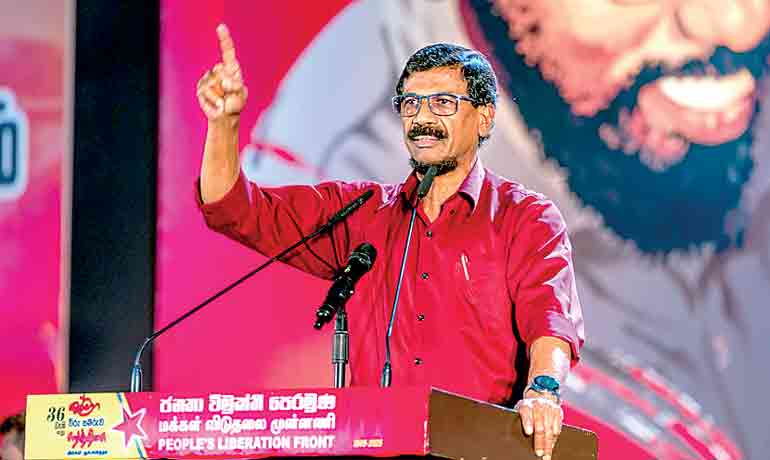
JVP Gen Sec promises not to forget Enemies and Traitors
 Despite the 2/3rds parliamentary majority which guaranteed the Budget’s passage, neither President AKD nor PM Harini attended COP 30 in Brazil.
Despite the 2/3rds parliamentary majority which guaranteed the Budget’s passage, neither President AKD nor PM Harini attended COP 30 in Brazil.
The JVP-NPP skipped BRICS, SCO and COP 30, but signed a Defence Partnership MoU with the USA (National Guard, Coast Guard, US Dept. of War), while the US has amassed a huge force and is militarily targeting Venezuela, blowing-up people in boats in the Caribbean and Pacific, accusing them without a shred of evidence of being drug traffickers.
Meanwhile the people of Ecuador have massively voted against foreign military bases.
JVP-FSP Rivalry
Last week, the JVP and its rival sibling the FSP held their respective commemorations of Rohana Wijeweera and their comrades who died in the second southern insurrection.
The JVP’s event at the Vihara Maha Devi Park’s amphitheatre had pretty much the same-sized, full capacity, seated crowd I’ve seen 10 years before. Not exactly a spillover gathering as befits a governing party just a year in office.
The attendance at the rival FSP event at Delkanda, Nugegoda was noticeably smaller but significantly bigger than the crowds it usually draws. This means the JVP is staying static, while the FSP is growing.
The respective messages of the JVP and FSP at their commemorations were diametrically different. Anura and Tilvin sounded tough. “This Government will remain” assured AKD. In an implicit but clear reference to the FSP, Anura also spoke about those ‘elders’, senior to him in the party, who broke away from the JVP and criticise it now. He disclosed that at the time of the schism, Tilvin Silva predicted the dissidents were “ headed the wrong way”, and kept the party steady. Clearly, the FSP is getting under the President’s skin.
“We shall never forgive our enemies and traitors” clarified Tilvin. I hope the mainstream democratic Opposition parties led by Sajith Premadasa and Namal Rajapaksa (the “enemies”) and the FSP (the “traitors”) take Tilvin’s pledge seriously.
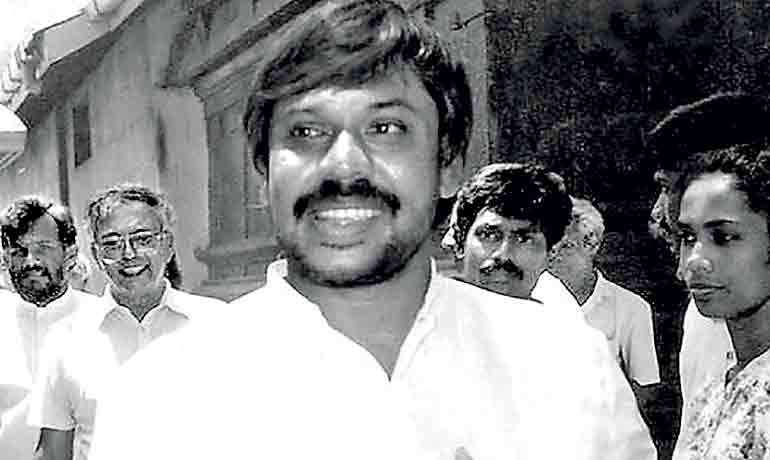
20 years before the Presidency: Mahinda as Rebel and Street-Fighter
JVP’s Self-Inflation
The key message of the JVP leaders was clear: they belong to an indomitable party and have proved victorious. Therefore, they will overcome all obstacles, vanquish all enemies.
But this is only partly true, and not even half-true. The JVP has been here twice before in 1970-1971 and 1987-1989. Like a tidal wave, they have risen and crashed twice, which is more than most revolutionary left parties that have made it to governmental office in Latin America and Asia.
The JVP’s pattern is between a bell-curve and an A-shape:
(A) It rises spectacularly.
(B) It impacts dramatically on the System and has a ‘moment’ of dominance.
(C) It overreaches and crashes to dramatic defeat.
Anura and Tilvin sounded to me like the overconfident JVP speakers at the Nugegoda rally around twilight in June 1989, months before its second catastrophe--the martyrs of which it commemorates.
The writing is already appearing on the wall:
1. The sharp drop in JVP-NPP votes at the Local Government elections, unprecedented for a ruling party within its first year.
2. The continuing string of defeats at the Multi-Purpose Cooperative Society (MPCS) elections in diverse parts of the country including the South.
3. The recent defeats of the inaugural Budgets of several precariously NPP-chaired Pradeshiya Sabhas.
 The key message of the JVP leaders was clear: they belong to an indomitable party and have proved victorious. Therefore, they will overcome all obstacles, vanquish all enemies. But this is only partly true, and not even half-true
The key message of the JVP leaders was clear: they belong to an indomitable party and have proved victorious. Therefore, they will overcome all obstacles, vanquish all enemies. But this is only partly true, and not even half-true
FSP’s Challenge
The FSP’s commemorative event featured just one lecture-- by veteran militant Chameera Koswatte. There were two key propositions:
 ‘Socialism is a living aspiration’.
‘Socialism is a living aspiration’.
 ‘The Rohana Wijeweera commemorated by the JVP was definitely not the same one memorialised by the FSP’.
‘The Rohana Wijeweera commemorated by the JVP was definitely not the same one memorialised by the FSP’.
The FSP loyally commemorated Rohana Wijeweera whose faith in the Socialist idea, ideal and goal was unquestionable. Thus, the FSP reiterated as its core identity, its fidelity to a Socialist project, drawing a thick, bright red line of demarcation between itself and the ideological defectors, the zealous converts to neoliberalism, i.e., AKD-Tilvin’s ruling JVP-NPP.
Chameera Koswatte also denounced the JVP as lacking internal democracy and as posing a threat to democracy in general.
The FSP has a clear critique of the JVP-NPP Government’s economics. A masterclass which included a wide-ranging socioeconomic critique and scenario for the next few years, topped by the outline of a political endgame, is contained in a post-commemoration interview by FSP Educational Secretary Pubudu Jayagoda.
(https://youtu.be/cNfkQCYxtGI?si=MjI0rz0BfGVSjU44)
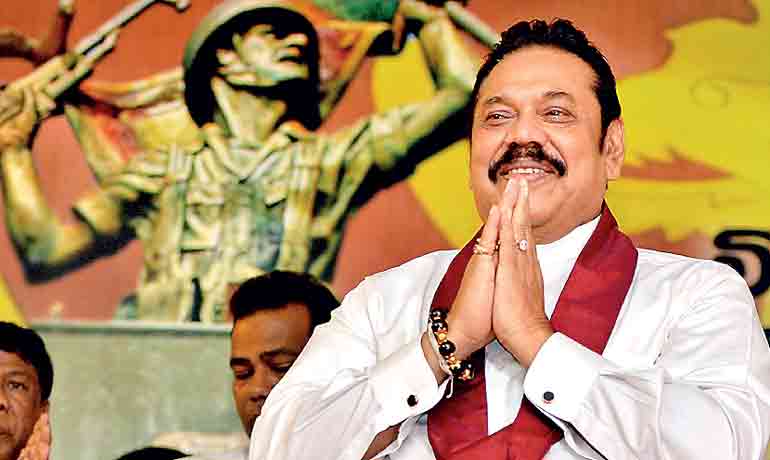
The Great Achiever: An Indelible Profile in History
Sri Lanka’s destiny will be determined by the interplay of the socioeconomic crisis with the four-way political contest between:
(a) The JVP-NPP Government.
(b) The centrist parliamentary Opposition led by Sajith Premadasa.
(c) The semi-parliamentary populist Opposition led by Namal Rajapaksa.
(d) The extra-parliamentary ‘social Opposition’ led by the FSP-PSA.
While this parallelogram of contending forces will dominate our political trajectory, the ratio or ‘correlation’ of forces within this quadrilateral ‘game’ will be determined by the continuing economic crisis and its deepening social costs. In this regard, the Communist Party of Sri Lanka recently made a striking point:
 ‘…The budget introduces US dollar–denominated local bonds…This adds to the external debt burden and exposes the country to additional currency risk…If the government proceeds with plans to raise roughly USD 300 million domestically in 2026, interest payments alone—at an estimated 7%—would add a further USD 21 million to the 2028 repayment bill…’
‘…The budget introduces US dollar–denominated local bonds…This adds to the external debt burden and exposes the country to additional currency risk…If the government proceeds with plans to raise roughly USD 300 million domestically in 2026, interest payments alone—at an estimated 7%—would add a further USD 21 million to the 2028 repayment bill…’
 How does one rate a leader? Is it by his/her behaviour, or an audit of the good and bad deeds that occurred during his time in office? Or by his/her role in history?
How does one rate a leader? Is it by his/her behaviour, or an audit of the good and bad deeds that occurred during his time in office? Or by his/her role in history?
Sajith, 13A, Sinhala Ultras
A Sinhala ultranationalist caucus has attacked Opposition leader and SJB leader Sajith Premadasa’s statement during his recent visit to Delhi that he and his party stood for the full implementation of the 13th amendment.
The same extremist fringe never had the guts to criticise President Mahinda Rajapaksa for his commitment to the “13th amendment Plus”, or more accurately “the 13th amendment plus one”, by which he meant the addition of an upper House.
MR’s critics were wrong when they misinterpreted his statement to mean going beyond the 13th amendment in terms of its devolved powers. He meant an ‘architectural’ addition of a Senate. However, when one says “13th amendment Plus”, even when it is “Plus 1”, it implies the implementation of the 13th amendment. It certainly doesn’t imply “13th amendment MINUS”.
Sajith was partially in error when he re-committed to the full implementation of the 13th amendment. Admirably consistent during his election campaigns of 2019 and 2024, in both the North and the South, he has always said “13th amendment—neither Plus nor Minus”. As Prime Minister, Ranasinghe Premadasa–an opponent of the foreign (IPKF) military presence on Sri Lankan soil—presented the 13th amendment to Parliament and piloted it through. As President he never tried to dismantle it.
Where Sajith erred was when he said “full implementation of the 13th amendment” without adding a caveat. He was incomplete in his formulation. He should have said “the full, incremental implementation” or “the full, graduated implementation”.
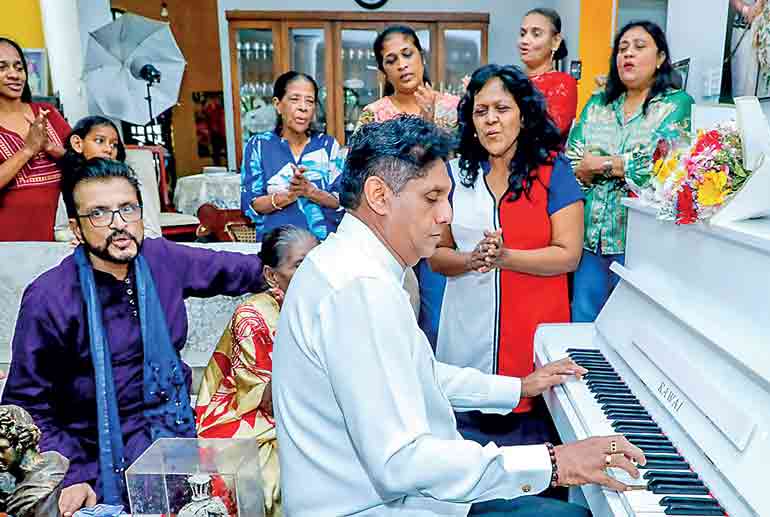
Sajith is mostly correct on 13A, but missed a note
There is no contradiction between “full” and “incremental”. Most agreements are eventually implemented fully but hardly ever like instant coffee. Contentious or unclear clauses are implemented conditionally or in stages/phases with verification. Another well-known method of resolving such problems is a ‘swap’. These approaches should be deployed regarding powers over the Police and land.
The Sinhala ultranationalist attack on the 13th amendment and those who supported it is certainly not patriotism or even Sri Lankan or Sinhala nationalism. I say this because the Sinhala ultranationalists have yet to explain the support for devolution by giants of Sri Lankan/Sinhala nationalism and/or anti-imperialism.
I. SWRD Bandaranaike’s B-C Pact of 1957 arguably went beyond 13A in that it permitted merger of districts across provincial boundaries.
II. The Communist Party and the CP-led trade union federation (the Ceylon Trade Union Federation, CTUF) explicitly advocated in testimony before the Soulbury Commission in 1944 and 1947, the two alternative options of regional autonomy or federalism for independent Ceylon.
III. Sirimavo Bandaranaike’s Democratic People’s Alliance (DPA) presidential election manifesto of 1988 pledged the removal of the IPKF but presented an 8-unit scheme of devolution to the Provinces which accepted the North-East merger (thus 8 units, not 9).
IV.Ranasinghe Premadasa’s presidential election manifesto of 1988 pledged the removal of the IPKF but didn’t oppose the 13th amendment.
V. Mahinda Rajapaksa’s ‘maximum devolution within a unitary state’, ‘implementation of 13th amendment’, ‘13th amendment Plus’.
Are the Sinhala ultranationalists more nationalist than SWRD and Sirimavo Bandaranaike? More patriotic than Ranasinghe Premadasa and Mahinda Rajapaksa? More anti-imperialist than the Communist Party of SA Wickremasinghe and Pieter Keueneman in Stalin’s era (the 1940s)?
 Mahinda was a great leader at a time Sri Lanka and the Third World needed it most. Furthermore, he held democratic elections even when he knew he’d lose. Post-war, he tapped Chinese surpluses and modernised the island’s infrastructure. Mahinda Rajapaksa’s historic merits greatly outweigh his mistakes
Mahinda was a great leader at a time Sri Lanka and the Third World needed it most. Furthermore, he held democratic elections even when he knew he’d lose. Post-war, he tapped Chinese surpluses and modernised the island’s infrastructure. Mahinda Rajapaksa’s historic merits greatly outweigh his mistakes
Revaluating Mahinda Rajapaksa at 80
Mahinda Rajapaksa was elected to the Presidency on 17 November 2005, turned 60 on 18 November and took office on 19 November. Having turned 80, Mahinda can look back on his life and achievement with the satisfaction that no other Sri Lankan leader since 1948 can, and with a degree of justifiable satisfaction that few leaders (Rwanda’s Paul Kagame and New Zealand’s Jacinda Ardern among them) can have anywhere in the world.
How does one rate a leader? Is it by his/her behaviour, or an audit of the good and bad deeds that occurred during his time in office? Or by his/her role in history? For those of us academically trained in the Social and Human Sciences (or ‘SHS’ as UNESCO calls it), it is the last-named criterion that counts above all.
How do you judge the role of a leader in history? It is by assessing the situation of primarily his/her country and secondarily the world at the time he/she assumed office, and the situation when he/she left it. Was it better or worse, in which respects and to what extent?
Most, if not all critics of Mahinda Rajapaksa assess him negatively on the basis of governance and political culture. Though there are many university academics who do so, there is no excuse for a self-respecting political scientist such as myself to do the same, because these are ‘second order’ considerations—the question of the State is primary.
In my first year at Peradeniya, Prof. K.H. Jayasinghe gave us a tutorial on the challenging topic ‘What Is Political Science?’ Returning to Lenin’s State and Revolution and Gramsci’s Prison Notebooks, I produced a thick script which concluded that ‘Political Science is the science of the State and Revolution’. I got an A Plus. It was probably the last tutorial I wrote in four years. It would seem that my conclusion about the core of political science was a guiding principle that I’ve tried to live, since.
Modern political science has always regarded Machiavelli as the founding father, but less known is the fascination and respect that outstanding Marxist-Leninists such as Antonio Gramsci and Louis Althusser have had for him. They have always drawn attention to and unequivocally hailed as historically progressive Machiavelli’s project of creating a viable, defensible, unified nation-state, ultimately a republic but inevitably midwifed by a decisive leader drawing on support from the people—the Prince. Antonio Gramsci famously saw Lenin and his Bolshevik party as The Modern Prince. The greatest political scientist of the left, and the founder of Marxist political science, Gramsci, regarded Machiavelli’s project as an early prototype of a Marxist politics.
Political philosophy, including that of the Left, has also come to respect and register the cold steel conceptual insights of Carl Schmitt, hardly a leftist and indeed a momentary supporter of the Nazi party though exonerated after inquiry by the Occupying Allied authority in postwar Germany.
It was the historical continuum of Sri Lanka’s two civil wars, North and South, and the barbaric-totalitarian nature of the anti-state forces involved in them (LTTE, JVP), that readily convinced me of the orientation in political philosophy classified as ‘Left Schmittian’. Carl Schmitt’s ‘agonistic’ conceptualisation of ‘the political’ as defined by the ‘Friend/Enemy’ distinction, has widely impacted intellectuals of the left (e.g., Chantal Mouffe).
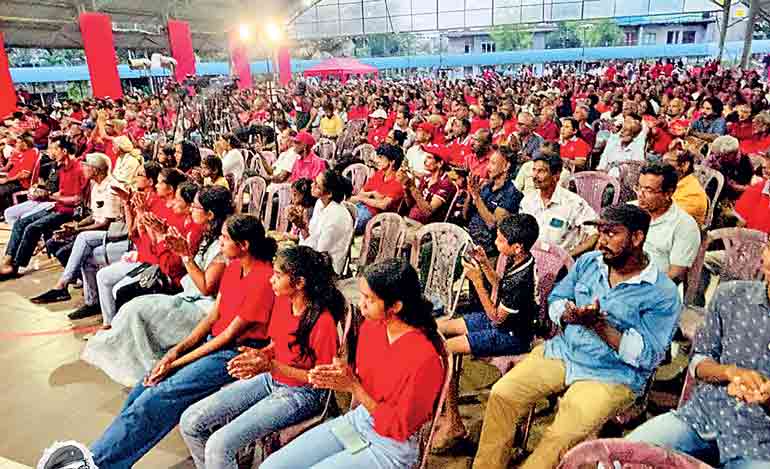
Frontline Socialist Party commemorates Wijeweera, denounces JVP Govt.
As a published political scientist and former diplomat, I cannot but assess Mahinda Rajapaksa from the perspective of the Sri Lankan State, and I would add, the post-colonial state in the global South. I see Mahinda’s role primarily in relation to the extreme crisis of the Sri Lankan state which he did not create but inherited—and overcame, when none of his predecessors since Sirimavo Bandaranaike did, and indeed failed where Mahinda succeeded.
Under Mahinda’s leadership the Sri Lankan State faced the deadliest of enemies, Prabhakaran’s LTTE and prevailed over it, winning a Thirty-Years War deemed ‘unwinnable’, in just under three.
Before I became a political scientist, i.e., from childhood through to university entrance, I had travelled to a few dozen countries, from the USA to Indonesia, UK to Iraq, USSR to Israel, France to Egypt, Italy to India, Germany to Pakistan, Switzerland to Greece, etc., with my parents. I’ve been to decent, progressive places which either no longer exist (Yugoslavia), or have been shattered and shrunk (Iraq) or underwent dark decades of dictatorship (Indonesia).
Just as it is thanks to President Ranasinghe Premadasa who saved the South and the democratic system, and sent back the IPKF, that we didn’t become South Asia’s version of Pol Pot’s Kampuchea or have a permanent foreign military presence on this island as does Cyprus, it is thanks to President Mahinda Rajapaksa that we liberated the Northeast, won the ‘unwinnable’ war, reunified the island and exist as a country, unlike Yugoslavia.
It is also thanks to Mahinda that the Sinhala nation, which has one of the oldest languages and continuous chronicles in the world, and only the island of Lanka as a collective home in which it is the majority, didn’t become a defeated, humiliated nation like Serbia.
 The Sinhala ultranationalist attack on the 13th amendment and those who supported it is certainly not patriotism or even Sri Lankan or Sinhala nationalism
The Sinhala ultranationalist attack on the 13th amendment and those who supported it is certainly not patriotism or even Sri Lankan or Sinhala nationalism
Mahinda Rajapaksa’s historic contribution was not only a victory for the Sri Lankan state, it was also a win for the small and medium nations of the world, especially but not only in the Global South, at a time of post-Cold War unipolar Western hegemony and interventionism.
Mahinda was a great leader at a time Sri Lanka and the Third World needed it most. Furthermore, he held democratic elections even when he knew he’d lose. Post-war, he tapped Chinese surpluses and modernised the island’s infrastructure.
Mahinda Rajapaksa’s historic merits greatly outweigh his mistakes.
Fathers and Sons
The gravest existential threats to the post-Independence State were met by presidents Ranasinghe Premadasa and Mahinda Rajapaksa. Premadasa paved the way for Mahinda by winning the Southern war and removing foreign forces from Sri Lanka. Mahinda completed what Premadasa left unfinished, prevailing decisively over the third challenge: winning the Northeastern war, defeating the ‘indomitable’ Prabhakaran and the LTTE in the face of dissuasive Western pressure.
With his Rooseveltian ‘growth with equity’ development model and unmatched socioeconomic achievement, Premadasa was the more progressive, but with his decisive victory over Prabhakaran, Mahinda was the more successful. I was fortunate to have worked with both.
 The attendance at the rival FSP event at Delkanda, Nugegoda was noticeably smaller but significantly bigger than the crowds it usually draws. This means the JVP is staying static, while the FSP is growing
The attendance at the rival FSP event at Delkanda, Nugegoda was noticeably smaller but significantly bigger than the crowds it usually draws. This means the JVP is staying static, while the FSP is growing
Sajith Premadasa needs to watch out for backsliding from his father’s progressive, patriotic stand to that of the Ranil Wickremesinghe/Yahapalanaya UNP, on development, devolution, accountability and foreign policy.
Namal Rajapaksa needs to ring-fence Mahinda Rajapaksa’s and the long Rajapaksa tradition’s progressive, center-leftism (older cousin Lakshman Rajapaksa won at the 1947 General Election as a Communist Party candidate), firewalling it from Gotabaya’s disastrous ultranationalist, Rightist, anti-farmer, pro-big business, pro-Israel deviation.
Premadasa-Rajapaksa second generation collusion can reset and reboot Sri Lanka, but collision can sink it.